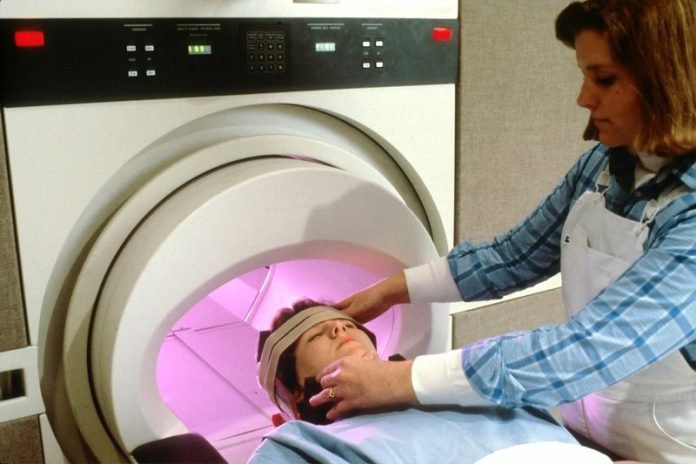
In a new study, researchers have developed an innovative diagnostic screening system, called DeepGlioma, which uses artificial intelligence to rapidly screen for genetic mutations in brain cancer.
The system analyzes tumor specimens taken during surgery, and in under 90 seconds, detects genetic mutations, which can streamline the diagnosis and treatment of gliomas, the most common and deadly primary brain tumor.
The study was conducted by a team of neurosurgeons and engineers at Michigan Medicine in collaboration with investigators from New York University, the University of California, San Francisco, and others.
The results showed that the newly developed system can identify mutations used by the World Health Organization to define molecular subgroups of the condition with an average accuracy over 90%.
The team stated that this AI-based tool has the potential to improve the access and speed of diagnosis and care of patients with deadly brain tumors.
Molecular classification is increasingly central to the diagnosis and treatment of gliomas.
The benefits and risks of surgery vary among brain tumor patients depending on their genetic makeup.
Patients with a specific type of diffuse glioma called astrocytomas can gain an average of five years with complete tumor removal compared to other diffuse glioma subtypes.
However, access to molecular testing for diffuse glioma is limited, and not uniformly available at centers that treat patients with brain tumors.
When available, the turnaround time for results can take days, even weeks.
This can result in suboptimal care for patients with brain tumors, complicating surgical decision-making and selection of chemoradiation regimens.
DeepGlioma creates an avenue for accurate and more timely identification, giving providers a better chance to define treatments and predict patient prognosis.
Prior to DeepGlioma, surgeons did not have a method to differentiate diffuse gliomas during surgery.
The system combines deep neural networks with an optical imaging method known as stimulated Raman histology to image brain tumor tissue in real-time.
The median survival time for patients with malignant diffuse gliomas is only 18 months, even with optimal standard-of-care treatment.
The development of medications to treat the tumors is essential, but fewer than 10% of patients with glioma are enrolled in clinical trials, which often limit participation by molecular subgroups.
Researchers hope that DeepGlioma can be a catalyst for early trial enrollment.
They stated that rapid methods for molecular classification hold great promise for rethinking clinical trial design and bringing new therapies to patients.
Brain cancer, also known as a malignant brain tumor, is a type of cancer that starts in the brain or the central nervous system.
There are two main types of brain cancer: primary brain tumors, which start in the brain, and metastatic brain tumors, which start in another part of the body and spread to the brain.
The exact cause of brain cancer is not fully understood, but research has identified several risk factors that can increase the likelihood of developing the disease.
These include exposure to radiation, a family history of brain tumors, and certain genetic conditions.
Symptoms of brain cancer can vary depending on the location of the tumor in the brain and the size of the tumor.
Common symptoms can include headaches, seizures, nausea and vomiting, vision or hearing problems, balance and coordination issues, and changes in personality or behavior.
Current diagnosis of brain cancer typically involves a combination of imaging tests, such as magnetic resonance imaging (MRI) or computed tomography (CT) scans, and a biopsy to confirm the presence of cancer cells.
Treatment for brain cancer depends on several factors, including the type and stage of the tumor, the location of the tumor in the brain, and the patient’s overall health.
Treatment options may include surgery to remove the tumor, radiation therapy, chemotherapy, targeted therapy, and immunotherapy.
If you care about cancer, please read studies that artificial sweeteners are linked to higher cancer risk, and how drinking milk affects risks of heart disease and cancer.
For more information about brain health, please see recent studies about antioxidants that could help reduce dementia risk, and Coconut oil could help improve cognitive function in Alzheimer’s.
The study was conducted by Todd Hollon et al and published in Nature Medicine.
Copyright © 2023 Knowridge Science Report. All rights reserved.



